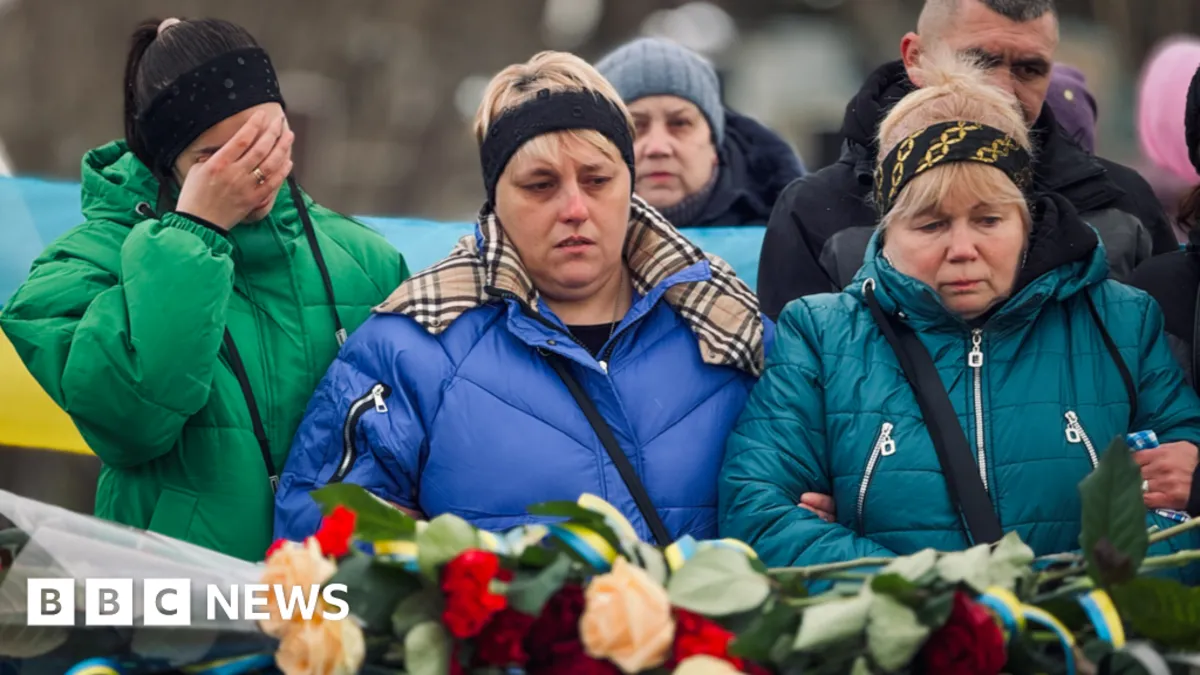
Donald Trump has expressed a desire to broker peace in Ukraine, but for many Ukrainians, this prospect raises concerns about what peace might entail. The village of Malokaterynivka, located just 15km (9 miles) north of the front line in Ukraine's Zaporizhzhia region, embodies the uncertainty and fear of what a peace agreement might mean.
In a conversation with Oleksandr Bezhan, a former fisherman by the Dnipro River, the bleakness of the current situation is evident. "I have no plans for the future at all," he states, echoing a sentiment of despair shared by many. The village hopes to end up on the favorable side of any new border should peace talks succeed.
Previously, in 2023, Ukraine launched a significant counter-offensive with dreams of victory. The successful defense of Kyiv and the liberation of other territories had bolstered Ukrainian spirits. However, nearly 18 months later, the front line remains static, and the destruction of the Russian-occupied Kakhovka dam has transformed the once expansive river into a barren expanse of scrubland.
The frozen conflict in Ukraine reflects a broader geopolitical struggle. The White House's desire to halt the war is complicated. The potential establishment of a new border is concerning, as Oleksandr explains, "Fighting could break out at any moment."
The current situation is further complicated by the fact that both Ukraine and the US seek peace, yet their visions diverge. Washington's approach, which implies Russia retaining control over seized Ukrainian territories, is at odds with Ukraine's desire for security guarantees to prevent future invasions. Meanwhile, Trump's focus on Russia and his denial of Ukraine's NATO aspirations adds to the complexity.
For Ukrainians, this is a challenging reality. As the country fights for its sovereignty, feelings of betrayal emerge, with criticisms directed at President Zelensky and the US's evolving foreign policy. "The border wouldn't depend on us," Oleksandr reflects, drawing a parallel with South Korea's proximity to North Korea.
The human cost of the conflict is ever-present in Malokaterynivka. Villagers recently gathered for the funeral of a local soldier, also named Oleksandr, highlighting the ongoing sacrifices. His widow, Natalya, expresses a desire for a ceasefire, despite her lack of hope.
Security concerns linger, as demonstrated by the disused railway line surrounded by barbed wire, intended to prevent sabotage by Russian agents. Nonetheless, there remains a glimmer of optimism, as Lyudmyla Volyk, a lifelong resident, hopes for the restoration of train services to Crimea, despite its lengthy occupation.